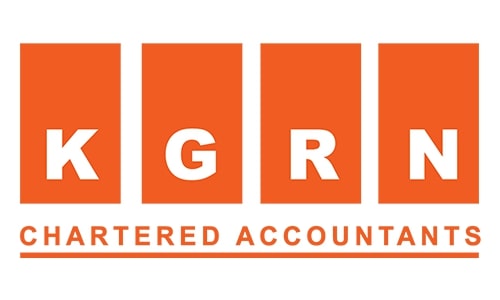For small business owners, the intricacy of taxation can be almost too much to bear at times. The complexity of employee taxes is the part that causes the most confusion. We shall attempt to debunk one of these fallacies in this post, which is the distinction between “self-employment tax” and “employment tax.”
This distinction is made mostly because self-employment taxes are paid by those who work for themselves, whereas employment taxes are paid by those who work for others, including their employers.
Taxes on Self-Employed Individuals
Generally speaking, self-employment taxes are a type of tax that self-employed individuals pay to the Social Security Administration in order to be eligible for benefits from the Social Security and Medicare programmes. They are calculated based on the profits made by a company that you own or control (not a corporation). Self-employment tax (sometimes known as “SECA” tax) is a type of income tax levied on self-employed individuals (from the Self-Employed Contributions Act).
A total of 15.3 percent of self-employment income is subject to Social Security and Medicare taxes, with 12.4 percent going to Social Security and 2.9 percent to Medicare. The amount of tax due is determined by the amount of business income earned by the individual.
Workers are responsible for half of these taxes (employers are responsible for the other half), but business owners are responsible for the entire amount of taxes. The tax can be deducted from business owners’ personal income tax returns in order to reduce the amount of adjusted gross income they report. However, they retain their full entitlement to benefits for self-employment taxes that they have voluntarily paid.)
Additionally, persons who are self-employed are required to pay income taxes on the earnings from their self-employment.
Payment of Self-Employment Taxes and Submission of Self-Employment Tax Returns
Self-employment taxes are reported on the proprietor’s business tax return, which is filed with the IRS. Most firms declare this income on Schedule C of their individual tax return, which is filed with the IRS. Following the calculation and reporting of your company’s net income, you will utilise Schedule SE to compute and record self-employment tax on your behalf.
A large number of business owners are required to pay expected taxes on income and self-employment on a quarterly basis due to the fact that self-employment income is not withheld from their paychecks throughout the year. Underpayment penalties may be assessed by the IRS in the event that these quarterly payments are not completed on time.
Employment-Related Taxes
Employment taxes include federal income taxes, FICA (Social Security and Medicare) withholding, and the Additional Medicare Tax, all of which are included in the federal income tax. Withholding and depositing these taxes from employees’ paychecks, as well as reporting and paying them to the Internal Revenue Service (IRS), fall solely on the shoulders of employers.
In accordance with the information provided on Form W-4 issued at the time of employment and the applicable withholding tables, federal income taxes must be withheld from each employee’s remuneration.
In accordance with the amount of the employee’s payment, employers and employees split FICA taxes (Social Security and Medicare). Each is responsible for 7.65 percent of the total, for a total of 15.35 percent.
Social Security taxes are calculated based on the amount of Social Security benefits received. Certain benefits and payments may be reduced from your Social Security earnings when calculating your benefits and payments.
Employment taxes must be reported and paid on time.
The FICA and income taxes withheld from employee pay are disclosed to employees on Form W-2, the annual wage and tax report, which is distributed to employees. This information is then put into the employee’s tax return as a whole (Form 1040 or 1040-SR).
Federal unemployment insurance is included in employment taxes as well (FUTA). Employers are responsible for paying this tax in order to offset the costs of their employees’ unemployment benefits. As a result, self-employed individuals do not pay unemployment taxes and are consequently ineligible to receive unemployment compensation benefits.
Additional information about Medicare and Social Security taxes can be found at www.medicare.gov.
A cap is placed on annual Social Security wages; if the amount of Social Security tax due surpasses the cap, no further Social Security tax is due. Employees, their employers, and self-employed individuals are all included in this classification. There is a maximum amount that applies to all earnings, including employee salaries and tips, as well as self-employment earnings.
Employee wages and self-employed persons’ net profits are all subject to the Medicare tax, which is levied on both individual and employee net earnings. Furthermore, those who earn a specific amount of money are required to pay an additional Medicare charge on top of their usual salary. Wages, salary, and self-employment income are subject to an additional 0.9 percent Medicare tax if they surpass a $200,000 annual threshold. Employers are exempt from having to pay this additional Medicare premium for their employees.
What Happens If I Make Money Through Both Self-Employment and Regular Employment Opportunities?
What happens if I work both as an independent contractor and as an employee? Is it necessary for me to pay all self-employment and employment taxes? True and false both. All sources of income, including self-employment and employee salaries and wages, are subject to income tax. Your wages will be subject to both self-employment tax (SECA) and Federal Insurance Contribution Act (FICA) taxes. The Social Security tax, on the other hand, has a cap on how much money can be collected.
If the Social Security maximum is not reached, employer-related FICA payments are normally reviewed first, followed by self-employment taxes. In this perspective, the SECA and FICA taxes are discussed in greater depth in this article.
The federal income taxes, Social Security, and Medicare levies paid by self-employed persons and workers are identical except for the payment of federal unemployment benefits.
In contrast to employees, who have these taxes deducted from their paychecks and report them on their individual income tax returns, self-employed individuals pay these taxes on the income earned by their business.
Tax Consultant Dubai – Get Expert Tax Advice Now!
Expert tax consultants in Dubai providing personalized tax planning, compliance strategies, and advisory services tailored to your business needs. Our specialists ensure that you are fully compliant while optimizing your tax liabilities. Schedule a consultation today to get expert tax advice!
Related Info:







